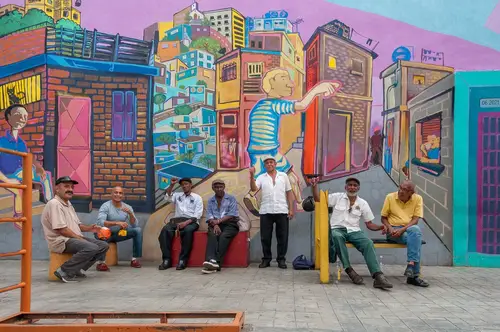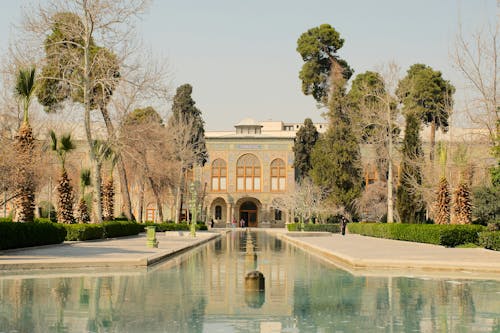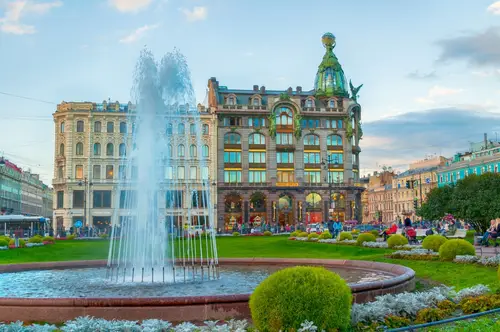1. North Korea Declares U.S. Tourists Persona Non Grata

After the death of American student Otto Warmbier in 2017, North Korea essentially became a no-go zone for U.S. travelers. The U.S. banned its citizens from visiting, and Pyongyang responded with harsh words and a sharp drop in foreign tourism approvals. Though North Korea didn’t issue a formal ban on Americans, it made it nearly impossible for them to get in. They began denying tourist visas and ramping up scrutiny for anyone with U.S. connections.
This informal restriction was both a security measure and a political move. North Korea signaled that Americans would no longer be treated leniently if detained. It also reinforced their propaganda narrative that the U.S. was a hostile force. The chilling effect was so strong that even humanitarian trips were often rerouted or canceled.
2. Venezuela Restricts U.S. Diplomats and Tourists

Following new U.S. sanctions and visa restrictions on Venezuelan officials in 2015, Venezuela clapped back with its own ban. President Nicolás Maduro called it an act of “diplomatic equality,” targeting former U.S. officials like George W. Bush and Dick Cheney. He also required American tourists to obtain visas, which hadn’t been necessary before. The new rules included proof of income, intent of travel, and even a letter of invitation.
The Venezuelan government justified the ban by accusing the U.S. of meddling in internal affairs. It aimed to curtail U.S. influence and surveillance under the guise of tourism. Many Americans found the new process too bureaucratic or politically charged to pursue travel. And given Venezuela’s internal crisis, the restrictions also served as a convenient way to deter foreign scrutiny.
3. Iran Retaliates Against Trump’s Travel Ban

In 2017, Iran banned U.S. citizens from entering the country in direct response to the Trump administration’s “Muslim Ban.” The original U.S. policy targeted seven Muslim-majority countries, including Iran, citing national security concerns. Iranian officials called the move “an insult to the Islamic world” and swiftly issued their own counter-ban. This tit-for-tat moment highlighted how quickly diplomacy can devolve into restriction.
Iran’s ban wasn’t just symbolic—it effectively shut down a growing number of American tourists, researchers, and dual-national families trying to visit. It also affected academic exchanges and cultural visits that had been increasing post-Iran nuclear deal. For Iranians, it served as a point of national pride to push back. But for U.S. travelers, it marked a clear fallout of American immigration policies.
4. Turkey Suspends Visa Services for U.S. Citizens

In October 2017, Turkey abruptly suspended all non-immigrant visa services for Americans. The decision followed the arrest of a U.S. consulate employee accused of ties to the Gülen movement. It was a shocking move, especially for a NATO ally, and caught many travelers off guard. Within hours, the U.S. reciprocated with its own visa freeze for Turkish citizens.
The freeze lasted for about two months and disrupted tourism, business, and diplomatic engagement. Turkey justified it as a matter of national security and reciprocity. The situation underscored how rapidly international relations can impact everyday travelers. For many Americans, it was a wake-up call about the unpredictability of cross-border politics.
5. Russia Cuts Visa-Free Cruise Entry for U.S. Citizens

In 2020, Russia quietly ended visa-free entry for U.S. cruise ship passengers visiting St. Petersburg. The move followed a string of diplomatic escalations, including tit-for-tat expulsions of diplomats. While not a full-on travel ban, it specifically targeted the ease of American access to a popular tourist destination. U.S. travelers were now required to get standard visas, a process often mired in delays and red tape.
The timing wasn’t random—Russia had already faced multiple rounds of U.S. sanctions over Ukraine and election interference. Making it harder for American tourists to enter was part of a broader message. Moscow wanted to show it could push back in small but pointed ways. The impact was most felt by cruise lines, which had to cancel or alter itineraries.
6. Libya Bars U.S. Citizens After Travel Ban Inclusion

After being included in Trump’s revised travel ban in 2017, Libya responded by suspending the issuance of visas to American citizens. The move was seen as both retaliatory and symbolic, asserting Libya’s sovereignty. Though American tourism to Libya had already plummeted due to security issues, the ban made it official. For NGOs and journalists, it created another layer of difficulty in operating within the country.
The Libyan foreign ministry explicitly cited the U.S. immigration policy as its reason. While the practical impact was limited due to existing instability, the political gesture resonated. It was an expression of mutual distrust and resistance to perceived discrimination. The tit-for-tat dynamic only deepened the divide between the two nations.
7. Yemen Denies Entry to U.S. Passport Holders

Following its inclusion in the 2017 U.S. travel ban, Yemen clamped down on American passport holders. Entry became nearly impossible except for diplomats or humanitarian workers with special clearances. Though Yemen was in the throes of a civil war, the ban signaled a political stance more than a logistical one. The Yemeni government-in-exile voiced strong disapproval of U.S. immigration policies.
Even before the ban, travel to Yemen was discouraged by the U.S. State Department due to conflict. But the symbolic closure of its doors to Americans sent a message of protest. Yemen’s decision mirrored the rationale used by the U.S.: national security and sovereignty. In practice, it reinforced how geopolitics overrides personal mobility.
8. Chad Halts Visas for U.S. Citizens

Chad was caught off guard when it appeared on the 2017 U.S. travel ban list. In retaliation, the Chadian government temporarily suspended issuing visas to Americans. This move confused many, as Chad had been a counterterrorism partner with the U.S. The decision strained diplomatic relations, especially since the U.S. later admitted Chad’s inclusion was a bureaucratic error.
Chad’s response was swift and defensive, signaling that it wouldn’t tolerate being lumped in with countries seen as security threats. American NGOs, business workers, and aid organizations felt the squeeze. The visa halt disrupted ongoing projects in health, education, and infrastructure. It also exposed how immigration policy errors can have far-reaching diplomatic consequences.
9. Cuba Introduces Visa Limits for U.S. Travelers

In 2020, Cuba imposed new restrictions on American travelers, especially those coming under “people-to-people” travel categories. This was partly a response to tightening U.S. sanctions and embassy staffing cuts. While not an outright ban, the new rules severely curtailed U.S.-Cuba travel that had been expanding under Obama. It felt like a reversal of progress made toward normalization.
Cuba also began limiting hotel access and internal flights for U.S. citizens. The restrictions were framed as necessary security measures, but they had clear political overtones. Americans traveling independently found it much harder to get visas or book accommodation. The Cuban government used the situation to paint the U.S. as an unreliable and antagonistic partner.
10. Pakistan Delays U.S. Visas Following Tensions

In 2018, Pakistan began delaying visa approvals for American citizens and even denied some outright. This came after the U.S. imposed travel restrictions on Pakistani diplomats in Washington. The tit-for-tat escalation marked a downturn in U.S.-Pakistan relations. Visa delays became a quiet but impactful way for Pakistan to express dissatisfaction.
For American aid workers and researchers, the delays created major logistical headaches. It also disrupted family reunions for those with Pakistani heritage. Though not officially declared a ban, the effect was similar—travel slowed to a crawl. It was a clear message: actions against diplomats would be met with consequences.
11. Somalia Denies Entry to U.S. Citizens

After being included in the U.S. travel ban list, Somalia enacted its own visa restrictions for Americans. While the policy was not widely publicized, several cases emerged of Americans being denied entry or facing long delays. Somali officials suggested it was a matter of parity and dignity. They argued that Americans shouldn’t expect red-carpet treatment when Somalis were being barred.
The restrictions affected humanitarian workers, journalists, and diaspora members returning for family visits. The move mirrored growing frustration with the Trump administration’s policies toward Muslim-majority nations. Though travel to Somalia was already limited, the additional hurdle discouraged engagement. It reinforced mutual suspicion between the two nations.
12. Sudan Responds to Ban With Entry Barriers

When Sudan was added to the U.S. travel ban in early 2017, its government condemned the action as unjust. In response, Sudan imposed new bureaucratic barriers for American travelers, including long visa processing times. While short of a full ban, the new measures made travel inconvenient enough to deter most visitors. Sudanese officials said the steps were a matter of national dignity.
Aid organizations with American staff were hit hard, as were academic and cultural exchange programs. The timing made clear that Sudan’s move was in direct response to U.S. policy. It wasn’t about real security concerns, but diplomatic retaliation. The consequence was another closed door in a region already fraught with barriers.
13. Bolivia Refuses Entry to U.S. Citizens Without Visas

In 2007, under President Evo Morales, Bolivia began requiring visas for U.S. citizens as a direct response to U.S. immigration policies. Morales cited the principle of reciprocity—since Bolivians needed visas to visit the U.S., the same would apply in reverse. He also blamed the U.S. for interfering in Bolivia’s domestic politics. The new requirement caught many American backpackers and eco-tourists by surprise.
Travelers now needed to show proof of accommodation, financial means, and travel insurance. The visa policy slowed tourism and became a frequent complaint among U.S. travelers to South America. Bolivia used it to push back against what it saw as U.S. arrogance. It was one of the earliest examples of a country explicitly linking its immigration policy to American actions.
This post 13 International Travel Bans Issued Because of U.S. Immigration was first published on American Charm.


